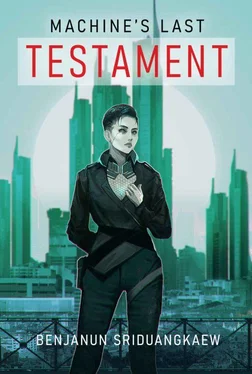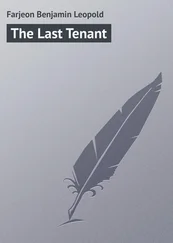It jars. She is caught out. “Out of life in general?”
“The tragedy of saints is that no one asks what can be done for them, only what they can do for others. I wish I could bring joy to your life, and I’d wish the same if we had met in a different time, a different place, and you’d never done anything for me at all.” Ovuha’s fingertips are rough against the thin skin of Suzhen’s wrist, moving in small, slow circles.
“What would you do then? In a different time, a different place.”
“Ask if you’d like to see or fly a hawk, help you put on gloves and set an amiable one on your wrist. Take you to a vineyard where the grapes are as big as my fist, and the wine comes in a hundred colors. Then I would discover you like neither hawks nor wine, and be entirely mortified.”
Her mouth twitches. “There are vineyards on Gurudah?”
“As long as we’re fantasizing, anything is available.” Ovuha lifts Suzhen’s wrist. “May I?”
It is a precipice. After this there will be no coming back. “Yes,” Suzhen whispers, already anticipating the regret, the labyrinth she’ll need to navigate just to achieve a semblance of ethics. To return to where they were just an hour ago, just yesterday.
Ovuha kisses her palm, gently, her mouth soft and hot. Twice. Teeth scrape against the pad of Suzhen’s thumb. It is chaste contact, tame. The frisson that pierces her is like the onset of a fever, painful, delirious. She wants; this does not suffice. Ovuha’s lips climb to her forearm, then the inside of her elbow. Suzhen thinks of Ovuha pressing her down, making conquest of her body, doing things to her that someone like Vipada can’t imagine in a thousand years. She pictures herself rising and falling beneath Ovuha’s sure hands.
“We are stopping here.” Suzhen swallows. Her throat is dry. “You didn’t have to do this.”
“I don’t pursue or permit anything I don’t desire. My sense of ownership to my body is absolute.” Ovuha has not let go of her wrist, her lips close to the point of Suzhen’s pulse. “I almost wish you were less honorable, but then I wouldn’t be so attracted. This leaves us at a peculiar impasse, don’t you think.”
Suzhen pulls away. “It doesn’t. There is no impasse. There’s abuse of power on my part.” She opens the window. Fresh air on her skin; she breathes deeply. The evening scintillates with traffic vectors, noisy without the soundproof pane. I don’t even think of you that way would protest too much, evidently false. But there was no latent lust, just an unscrambling of the senses by crisis, by her own trauma. Stress misfires into something else. “I put you into this situation. I made you—”
Ovuha cants her head, hands steepled in her lap, the picture of control. “If you believe I possess agency, then it follows that I would exercise it. I wasn’t always powerless and my personhood wasn’t always in question. But I understand that I could make my consent explicit until I’m blue in the face and you would still believe it compromised.”
She has to transfer Ovuha. But to whom—not to anyone like Nattharat, and most at the Bureau are more Nattharat than they are anything else. The ones who aren’t have long quit, or are too new to sponsor a potentiate, too new to handle… this. The model potentiate. The one that should be easy to speed through probation, the case that should be absolutely simple. “The Jasmine is accessible to caseworkers. I sent a request. I can look around the rooftop for you.”
“I would prefer to be there. If that is all right.”
Tomorrow she will look for an agent, she will find someone she can trust. And treating Ovuha as a project that can be turned over, that is itself a denial of personhood, of Ovuha as a full adult being. But the alternative she cannot bear. Not that Suzhen will ever be disciplined, especially if Ovuha does not file a complaint; there is room to flex and exploit, for caseworkers as it is for camp wardens. A caseworker could even claim it as therapeutic. The potentiate as the least of the least, anything inflicted upon them given sanction.
“Fine,” Suzhen says. “We’ll be there and back quickly. Dress for the cold.”
On the ride Suzhen is silent, remote, keeping a physical as well as conversational distance. Sufficient space between them to fit three passengers. Ovuha does not push, she knows better, but she glances at Suzhen and finds the officer tense, mouth a thin line. Billboard reflections fall across her in shards, in fragments. In profile she is an ephemeral sculpture, carved from skull and shadow.
Ovuha thinks again of how much easier it would be, if they’d met elsewhere. She understands herself well enough, the impulses that drive her to want Suzhen, to have this woman for her own. Like anyone, she is not impervious to the appeal of a benefactor who gives and gives, and does not demand. What she does not understand is Suzhen’s character, how Suzhen can maintain this resolve. In a world where she must have been taught that such resolve—such empathy—is neither necessary nor socially encouraged. No peer of Suzhen’s would fault her for making use of Ovuha, for finding satiation in Ovuha’s body.
“Does it work?” Ovuha asks mildly. Picking up from where they left off. “The therapy.”
“Samsara has judged it the best answer. Since it was introduced in calibration routines, rate of attempted crime has dropped to near zero.” Suzhen’s tone is clipped. “By that metric, yes, it works.”
“What other metric exists?”
To this she receives no response: Suzhen has shut down, Ovuha has pushed too far. A misstep, but one Ovuha knows she’s been careening toward. She has been reckless with this woman, in more ways than one.
They land on the balcony of the Jasmine’s midsection. There is no security present. Repair drones crawl along the building’s façade, undoing years of disuse, sealing up the cracks and impact sites—usually from within—on the windows. The complex is ready for habitation. Residents haven’t been moved back, Ovuha expects, on account of human inefficiency. Someone has not approved a process, someone else has not signed for the relocation of potentiates. Disinterest or malice, the result is the same. The handling of potentiates is regulated by Samsara, as all else is, but day-to-day matters fall under human management. The only area of civilian life on Anatta where people decide other people’s fates.
Suzhen glances at the elevator. “We’ll have to use the stairs.”
The stairways are compressed, narrow, though cleaner than Ovuha has ever seen them. The drones have scraped and melted away a decade’s worth of filth and the corridor smells of solvents. Lights come on as they mount the steps and fade behind them, an antiseptic gleam that makes a ghost of everyone. Eight floors up, a long climb where the only sounds are the muted buzz of drones and their footsteps and their breathing. She watches the small of Suzhen’s back, starkly outlined; one of the most magnificent features on a human body, Ovuha has always thought, that point where the spine curves, sinuous. She used to fit her palm against a lover’s spine just so. The biochemist to whom Ovuha could show her face, one of the few. Briefly Ovuha wonders how she is doing now. Well, she hopes, being a civilian.
Suzhen’s breathing grows loud and hitched. She leans against the railing and gasps. “How are you not even breaking a sweat?”
“I used to take these stairs to keep my stamina. Would you let me head to the roof alone? I’ll be fast.”
“Go ahead.” Suzhen clutches at her side, heaving. “Not like I’m in any shape.”
The rest of the way is faster, though Ovuha paces herself. She does not want to reach the rooftop winded, adrenaline squandered on the climb. It is not that she expects danger, precisely. But she prepares.
Читать дальше












